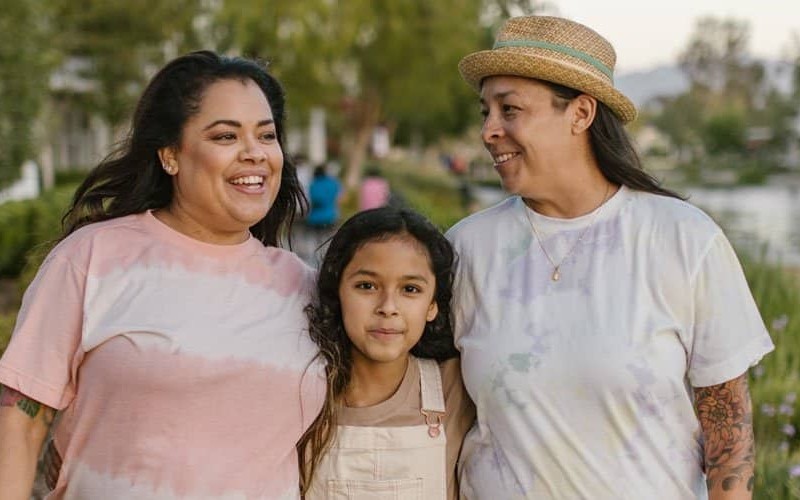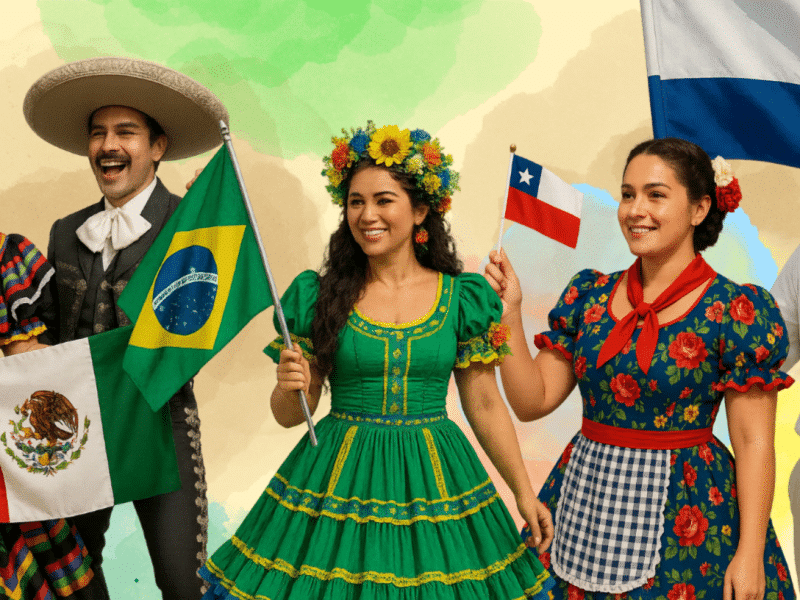Not All Latinos Speak Spanish – And They Don’t Need To
From feeling ashamed for not knowing English to the systemic inequalities that erased Spanish from Latino upbringing, this story sheds light on the misconceptions we need to leave behind.

I remember one of my earliest memories of attending school as a second-grader in the United States like it was yesterday: I was barely starting to understand the English language and was very shy about speaking it. At this point, I was still in Spanish-language classes but on this particular day our homeroom teacher was out and in her place we were taught by an English dominant teacher. I remember a huge sign that sat near her desk that read, “I want the restroom”.
If you wanted to go to the restroom you had to read the sign in English. As a shy, Spanish-speaking student, I put my hand up but could not bring myself to read the sign even though she was persistent in mouthing the words while pointing at the sign.
In that moment I felt ashamed of not knowing English, of not being able to verbalize a basic necessity, and felt as though I rather hold it in to avoid my teacher’s glaring eyes as she demanded I repeat after her.
This memory still makes me shudder and makes me realize how often our experience as Spanish speakers was not one of pride but rather one we felt the need to disguise to survive.
There’s a video trend on TikTok that asks, “What’s classy if you’re rich but trashy if you’re poor?”
Speaking multiple languages is one of these things. The idea that if your child can speak multiple languages means you have afforded them the opportunity of a better life. Yet immigrants are asked that they assimilate, be stripped of their culture, their traditions, and their native languages.
We’ve seen high-profile Latine individuals who go on to achieve great things only to be asked, why don’t you speak Spanish? It’s as if their Latinidad is only valid if they speak Spanish. They fail to realize that the same system that asks why they don’t speak the language also stripped them of the opportunity to embrace their native tongue.
In states like Texas, New Mexico, and the rest of the Southwest, young students grew up being punished or even being beat for speaking Spanish in classrooms. To assimilate and provide what they thought was a better life for their children, parents would avoid speaking the language altogether. This resulted in many Latinos who do not speak the language even though they are only second or third generation.
So when we wonder why our fellow Latinos don’t speak Spanish, we must choose not to shame them. For many, assimilation was forced upon them, giving them no other option. It’s time to put our misconceptions about the Latino community behind us and realize that language does not define whether you are worthy of being considered Latino or not.
There are enough issues that we face as a community, and punishing Latinos for not speaking their native tongue does nothing but exclude members of it. It’s time to recognize the systemic inequalities that continue to plague our community, the same inequalities that perpetuated the erasure of Spanish from our upbringing.



